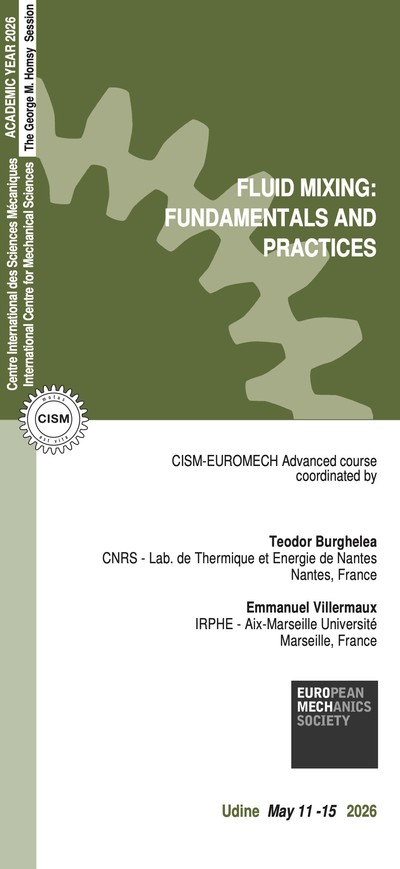As we move towards electrified and more automated vehicles, vehicle dynamics remains a key aspect in the vehicle development. Vehicle engineers need to be able to ensure safe and robust performance of vehicles through classical and novel modelling and control approaches, requiring an ever broadening set of skills.
The design of a vehicle is now more challenging than ever, including the need to meet new driver-oriented requirements. At the same time, the role of the driver is shifting through steady advancements in vehicle automation. Progressive vehicle electrification allows control techniques that were not imaginable before, such as those harnessing independently actuated drivetrains. Meanwhile, innovative vehicle control techniques often require reliable estimates of relevant vehicle motion parameters (e.g. sideslip angle) which are not trivial to achieve. Engineers and researchers should not only to be able to perform theoretical studies and simulations, but also be proficient vehicle test engineers. Conducting vehicle testing or state-of-the-art research on actual vehicle prototypes requires familiarity with vehicle instrumentation techniques and experimental platforms for real-time vehicle control.
With that in mind, this course aims to benefit vehicle dynamics engineers at any level of their career, working in academia and/or industry. At the beginning of the course, the main vehicle dynamics fundamentals will be briefly revisited, including e.g. tire and vehicle modelling. The subsequent module will refresh and strengthen the control theoretic background of the participants, along with discussing specific vehicle dynamics applications. The course will then move onto torque vectoring control, explaining how to exploit the possibility of independent actuation as the vehicle corners, supported through a Matlab-Simulink tutorial. Then, the framework of autonomous vehicles will be explored, covering key topics like levels of vehicle automation, path planning etc. Having in mind how to control a human-driven or autonomous vehicle, the participants will have the chance to learn and apply vehicle state-estimators based on Kalman filters and/or machine learning techniques, again with the support of Matlab-based tutorials. Then, a module on vehicle instrumentation and testing will cover key practical insights related to what sensors should be installed on the vehicle depending on the specific needs, how to install them and coordinate with all the car sensory equipment, how to read and analyze data. The final part of the course will deal with the importance of a driver-oriented approach in chassis design, including the analysis of the external demands on the chassis, and the investigation of the combination of the vehicle's properties, such as driving pleasure, driving safety, driving comfort, ride comfort, noise comfort.
Lenzo, B. (Ed.). (2022). Vehicle Dynamics: Fundamentals and Ultimate Trends (Vol. 603). Springer Nature.
Simon, D. (2006). Optimal state estimation: Kalman, H∞, and nonlinear approaches. Hoboken. NJ: John Wiley and Sons, 10, 0470045345.
Naets, F., van Aalst, S., Boulkroune, B., El Ghouti, N., & Desmet, W. (2017). Design and experimental validation of a stable two-stage estimator for automotive sideslip angle and tire parameters. IEEE Transactions on Vehicular Technology, 66(11), 9727-9742.
Hsu, Y. H. J., Laws, S. M., & Gerdes, J. C. (2009). Estimation of tire slip angle and friction limits using steering torque. IEEE Transactions on Control Systems Technology, 18(4), 896-907.
Naets, F. (2022). State and Parameter Estimation for Vehicle Dynamics. In Vehicle Dynamics (pp. 235-288). Springer, Cham.
Pacejka, H.B., Tire and Vehicle Dynamics, 2012.
Abe, M., Vehicle Handling Dynamics, 2015.
Wedlin, J., Tillback, L. and Bane, O., Combining Properties for Driving Pleasure and Driving Safety, SAE Paper 921595, 1992.
Bundorf, R.T. and Leffert, R.L., Cornering compliance concept for description of vehicle directional control properties, SAE paper 760713, 1976.
Doeblin E.O. “Measurement Systems: Application and Design” 1990.
Mastinu G., Ploechl M. (Editors) Road and off-road vehicle system dynamics handbook, CRC Press, 2013.
R.Figliola, D. Beasley, Theory and design for Mechanical Measurements, Wiley & Sons, 2019.
Pauwelussen J.P.(ed.): Vehicle Performance, Understanding Human Monitoring and Assessment, Swets & Zeitlinger Publishers (1999).
Guiggiani M., The Science of Vehicle Dynamics, Springer, 2018.
Milliken W., Race Car Vehicle Dynamics, SAE 1995.
Gillespie T., Fundamentals of Vehicle Dynamics, SAE 1992.
Beregi, S., Avedisov, S. S., He, C. R., Takacs, D., Orosz, G.: Connectivity-based delay-tolerant control of automated vehicles: theory and experiments. IEEE Transactions on Intelligent Vehicles, 2021.
7 lectures on: Open-loop vs closed-loop systems; Transfer functions, poles and zeros, Bode, Nyquist, stability, Pole placement method; PID control design; Sliding Mode Control design; Model Predictive Control design; Model-based vs non-model-based control design; Applications to Vehicle Dynamics.
2 lectures on: Vehicle dynamics basics and classic hypotheses; Vehicle kinematics; Vehicle models for handling and performance.
4 lectures on: Torque vectoring basics; Torque vectoring strategies for the design of the vehicle cornering response and the enhancement of safety. Practical examples with Matlab-Simulink.
5 lectures on: Driver-oriented approach to vehicle design; Demands on modern passenger vehicles; Consideration of all involved chassis-related properties simultaneously; Synthesis in the early design process using fairly simple vehicle models.
5 lectures on: Classical estimators and observers for vehicle systems (different forms of Kalman filtering, alternative approaches); Machine learning based observers for vehicle systems; State-of-the-art on dynamic vehicle estimators; State-of-the-art on vehicle tire estimation, including tire model selection and observability of different parameters.
2 lectures on: Practical examples with Matlab.
6 lectures on: Cruise control and adaptive cruise control; Nonholonomic dynamics of rolling; Kinematic and dynamic bicycle models; Motion planning and path following for automated vehicles.
4 lectures on: Methodology and targets of vehicle testing. Physical measures. Vehicle set up and preparation. Transducers, chain measurement and data acquisition systems. What measure and how. Type of manoeuvers. Subjective and objective evaluation. Examples of dynamic testing for road car and racing cars.
ADMISSION AND ACCOMMODATION
The course is offered in a hybrid format giving the possibility to attend the course also by remote (on Microsoft Teams platform). On-site places are limited and assigned on first come first served basis.
The registration fees are:
On-site participation, 600.00 Euro + VAT*
This fee includes a complimentary bag, five fixed menu buffet lunches, hot beverages, downloadable lecture notes.
Deadline for on-site application is August 4, 2023.
Online participation, 250.00 Euro + VAT*
This fee includes downloadable lecture notes.
Deadline for online application is August 23, 2023.
Application forms should be sent on-line through the following web site: http://www.cism.it
A message of confirmation will be sent to accepted participants.
Upon request a limited number of on-site participants can be accommodated at CISM Guest House at the price of 35 Euro per person/night (mail to: foresteria@cism.it).
* where applicable (bank charges are not included) Italian VAT is 22%.
CANCELLATION POLICY
Applicants may cancel their registration and receive a full refund by notifying CISM Secretariat in writing (by email) no later than:
- August 4, 2023 for on-site participants (no refund after the deadline);
- August 23, 2023 for online participants (no refund after the deadline).
Cancellation requests received before these deadlines will be charged a 50.00 Euro handling fee. Incorrect payments are subject to Euro 50,00 handling fee.
GRANTS
A limited number of participants from universities and research centres who are not supported by their own institutions can request the waiver of the registration fee and/or free lodging.
Requests should be sent to CISM Secretariat by July 4, 2023 along with the applicant's curriculum and a letter of recommendation by the head of the department or a supervisor confirming that the institute cannot provide funding. Preference will be given to applicants from countries that sponsor CISM.





